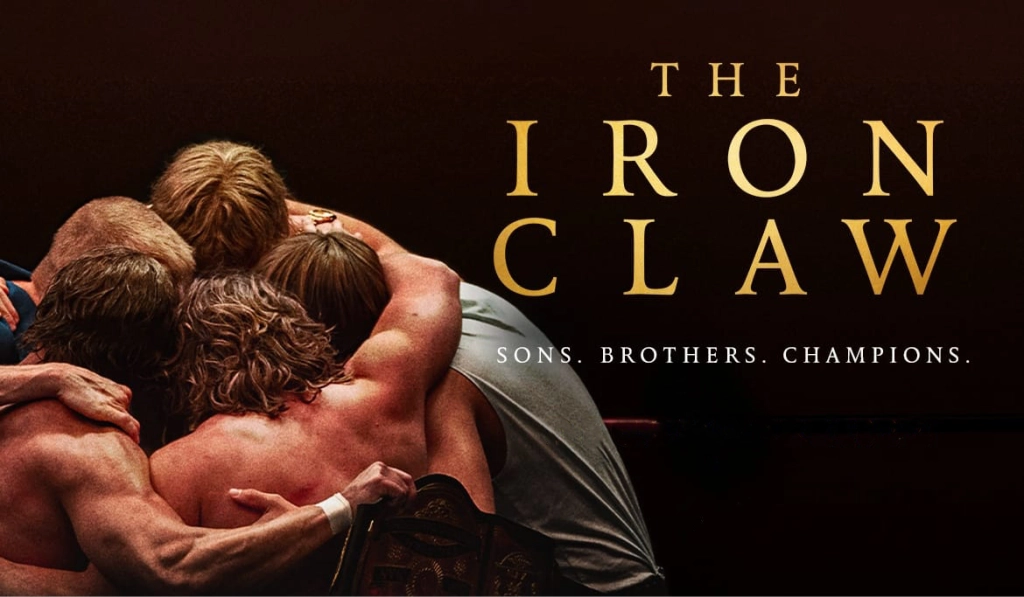True stories have been fodder for screenplays for as long as films have been made, in fact the very first feature film The Story Of The Kelly Gang made in 1906 depicted the true life and crimes of notorious Australian bushranger Ned Kelly.
I recently saw The Iron Claw at the cinemas and thoroughly enjoyed it. I am not a wrestling fan, though I watched it sometimes growing up, but I was fascinated by the gripping highs and tragic lows of the successful, yet cursed wrestler Von Erich family.
The Iron Claw was a great reminder on how to adapt real life to the screen and its timing was fortuitous as two of the four screenplays I’m currently writing are based on true stories.
Also many of the writers who engage my services to develop their screenplays are basing them on true stories or in some cases an aspect of their own life so I thought I’d detail 5 tips to adapting a true story.
1. Determine The Story With In The Story.
Your screenplay isn’t a documentary, biography or chronological record of the true story so don’t write a ‘this happened then this happened then this happened’ screenplay. Instead you need to determine the story within the story.
The life of the Von Erich family is an extensive one with many characters, threads and events. There are two parents and six brothers, some of those have wives and children, each brother experienced significant events and the family story sprawls across five decades. In fact it’s still going today as several of their offspring are professional wrestlers.
That’s a lot to encapsulate in 2 hours of screen time.
The writers wisely chose to focus on one central story which is the eldest brother Kevin’s aspiration to be the world champion wrestler. The other family members, father Fritz, mother and brothers Kerry, David and Mike’s stories orbit around and interact with Kevin’s story within his family experience.
2. Apply Storytelling Principles.
To develop the story with in the story think about how you can apply the story principles I’ve covered in other blogs and my online course
“What does my protagonist want?”
“What stops them from getting it?”
“What happens if they don’t get it?”
“What is the dramatic question?”
The last is very important as by having the protagonist strive for a goal the ever present question of ‘will they achieve their goal’ will ensure your screenplay is compelling and engaging.
The dramatic question of The Iron Claw is “Will Kevin become the world champion wrestler”.
Real life is messy and unstructured by nature so a dramatic question gives your story a clear through line and once you’ve established the story within the story you can determine which key events and parts of the person’s life to include and what to discard that aren’t connected.
Character depth and complexity is added to Kevin’s goal by delving into the question of “at what cost will achieving or failing at this goal have on Kevin, his relationships and his life.”
3. Leave Things Out.
Even if events or characters express the main drive of the story you will need to leave some out.
The Iron Claw follows four brothers, a fifth brother died when he was 6 years old but the writers left out a sixth brother (Chris) entirely. I am only speculating but it’s likely he was left out to reduce the run time, minimise repetition as his life had a similar trajectory to his brothers and another character would have limited screen time to flesh the existing brothers. Interestingly the writers did attribute some of Chris’ life story to Kerry’s , namely the manner in which Kerry committed suicide by using the gun he bought as a present for his father.
Some other significant things left out were Kerry had a wife and two daughters, David had a daughter who died as an infant (wow this family really is cursed), the circumstances of the youngest brother’s death was left out. Later in life Kevin is depicted as only having two sons but he had daughters as well. The obvious reason for this omission is the films central theme and dynamic of the intense bond between the brothers and Kevin’s sons are a symbolic and thematic device of ‘the replacement brothers’ as tragically Kevin has lost all of his brothers.
If the writers chose to tell a different story within the story for example ‘The impact of the pressure to excel on the family unit’ then perhaps their wives and children would have been included along with different events to what appeared in The Iron Claw and other would have been left out to express the different story choice.
There are many other events and characters left out but I won’t include them all here to keep this blog focused and tight (see what I did there?).
4. Change Details And Make Things Up.
Again, you’re not making a documentary, you’re writing a dramatic story and it needs to work as one. All the great ‘true story’ films have embellishments, make things up, create characters that never existed or reordered the timeline of events to make the narrative build better.
There are ethics around this, I am not suggesting rewriting history to erase it, unless the history was inaccurate. War films are a great example as they all take liberties with history, the scenario in ‘Saving Private Ryan’ is completely made up. There was a directive that if multiple siblings were killed in battle any remaining siblings were to be returned home but there was never a mission to find one of these Soldiers. The TV series offshoot ‘Band Of Brothers’, which is far superior to the film, is based on the actual events of Easy Company that were well documented but still took liberties to create the incredible drama.
There are countless examples of this but three others will illustrate the point.
‘Braveheart’ not only significantly altered the timeline to create drama, it made many things up, one being that King Longshanks son’s wife had an affair with Wallace and was carrying his offspring.
‘Cool Runnings’ used the concept of the first Jamaican bobsled team as inspiration but much of what happens in the film isn’t accurate.
‘Dog Day Afternoon’ was based on a real life bank robbery but the screenwriter Frank Pierson describes aspects of it as ‘farthest from the truth’ and that in the midst of a bank robbery there isn’t time to have so much introspection.
The timeline of events in The Iron Claw doesn’t match the real life order of what happened. I strongly suspect the overbearing father Fritz was exaggerated and certain scenes were made up to escalate the level of pressure he was putting on his sons. At times he is almost a caricature and his granddaughter said as much about Fritz in an interview.
5. Keep Researching.
As I have written on several occasions, research is one of the most fun aspects of screenwriting and is helpful in stimulating ideas and creativity.
Ongoing research in a true story is crucial for two reasons, though you are taking liberties with it, the true story will be a constant source of inspiration and ideas. Secondly the context of the story might change and by returning to research a detail, character or event that previously wasn’t relevant suddenly becomes the perfect element in your screenplay.
One of the stories I am writing is based on some very unique soldiers in WW2. I managed to secure interviews of these soldiers that were recorded in 1986. Every time I re-listen to the interviews I am surprised what new detail I pick up, a character trait I can use to improve existing scenes and in one case from the 1st to the 2nd draft it sprung an entirely new subplot that further expressed the central theme of ‘how much does a man compromise of himself in order to survive’.
Final Thoughts
As an exercise, think of a film you like based on a true story and research the actual story to see how the writer adapted it to the screen, what changes they made, what was made up and what was reworked to achieve a dramatic and compelling screenplay.





